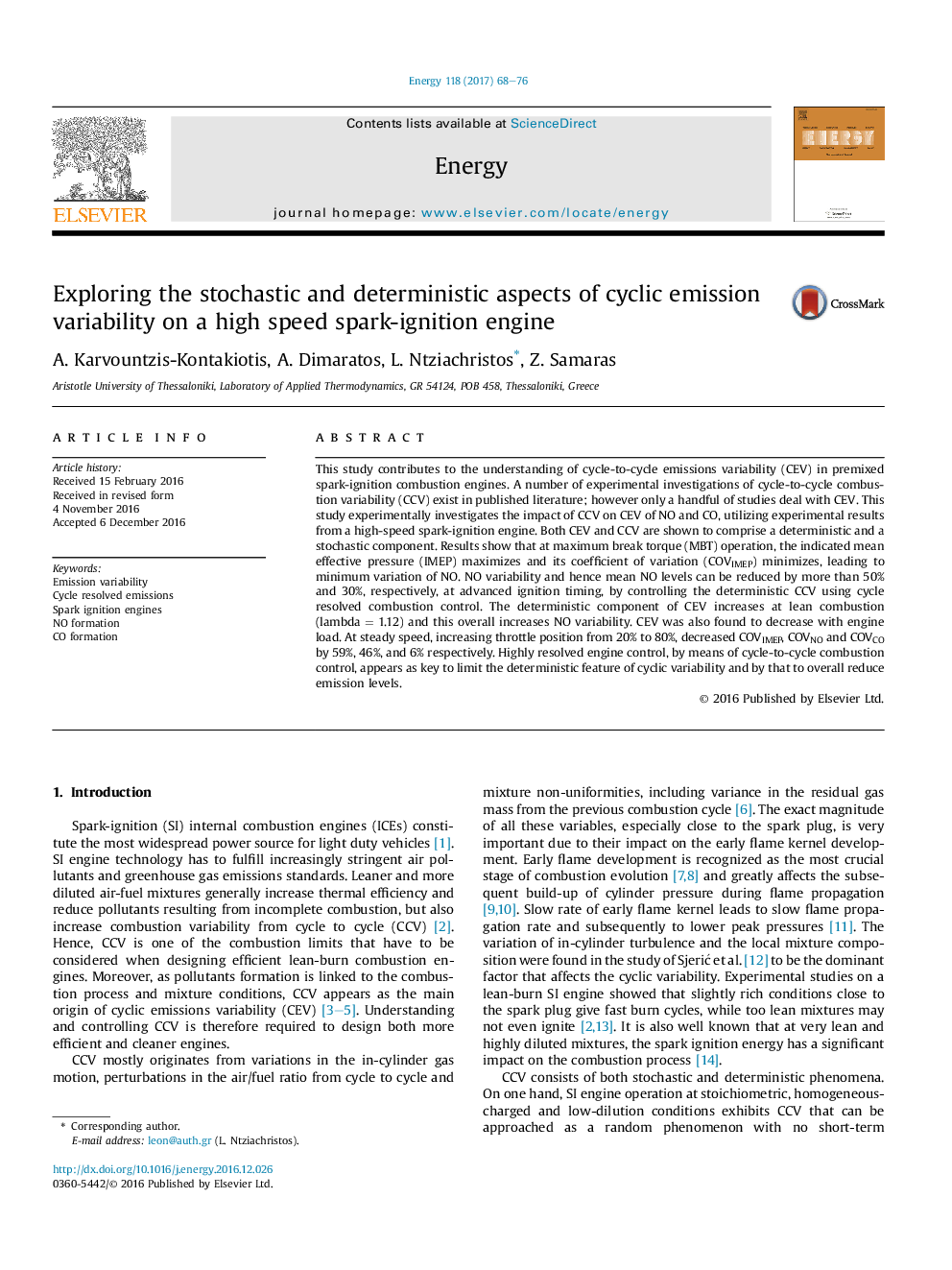| Article ID | Journal | Published Year | Pages | File Type |
|---|---|---|---|---|
| 5477041 | Energy | 2017 | 9 Pages |
Abstract
This study contributes to the understanding of cycle-to-cycle emissions variability (CEV) in premixed spark-ignition combustion engines. A number of experimental investigations of cycle-to-cycle combustion variability (CCV) exist in published literature; however only a handful of studies deal with CEV. This study experimentally investigates the impact of CCV on CEV of NO and CO, utilizing experimental results from a high-speed spark-ignition engine. Both CEV and CCV are shown to comprise a deterministic and a stochastic component. Results show that at maximum break torque (MBT) operation, the indicated mean effective pressure (IMEP) maximizes and its coefficient of variation (COVIMEP) minimizes, leading to minimum variation of NO. NO variability and hence mean NO levels can be reduced by more than 50% and 30%, respectively, at advanced ignition timing, by controlling the deterministic CCV using cycle resolved combustion control. The deterministic component of CEV increases at lean combustion (lambda = 1.12) and this overall increases NO variability. CEV was also found to decrease with engine load. At steady speed, increasing throttle position from 20% to 80%, decreased COVIMEP, COVNO and COVCO by 59%, 46%, and 6% respectively. Highly resolved engine control, by means of cycle-to-cycle combustion control, appears as key to limit the deterministic feature of cyclic variability and by that to overall reduce emission levels.
Related Topics
Physical Sciences and Engineering
Energy
Energy (General)
Authors
A. Karvountzis-Kontakiotis, A. Dimaratos, L. Ntziachristos, Z. Samaras,
